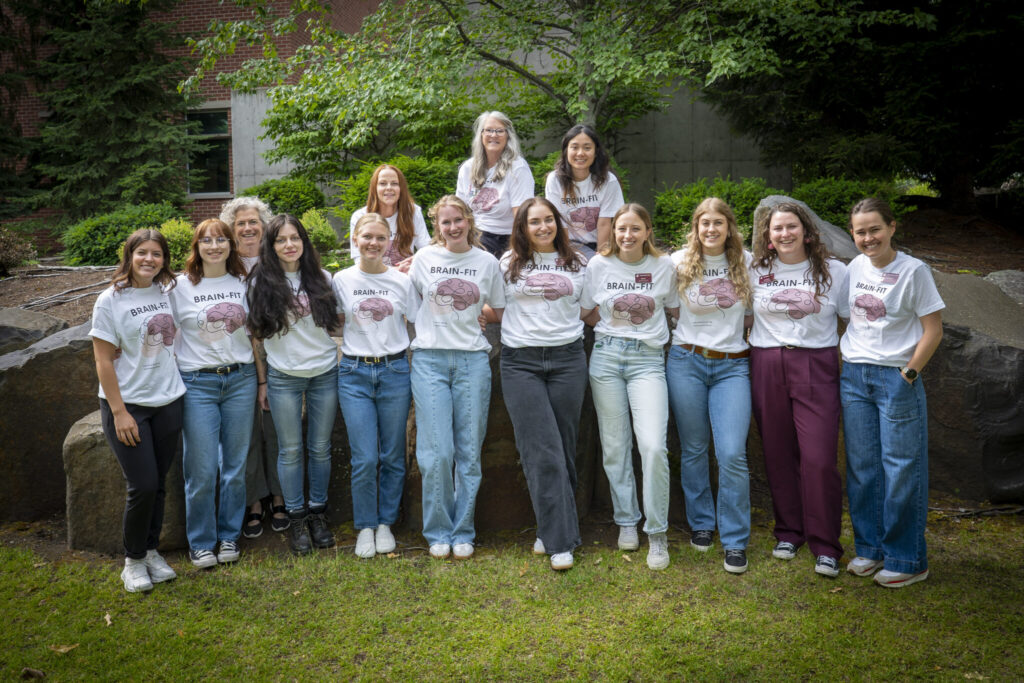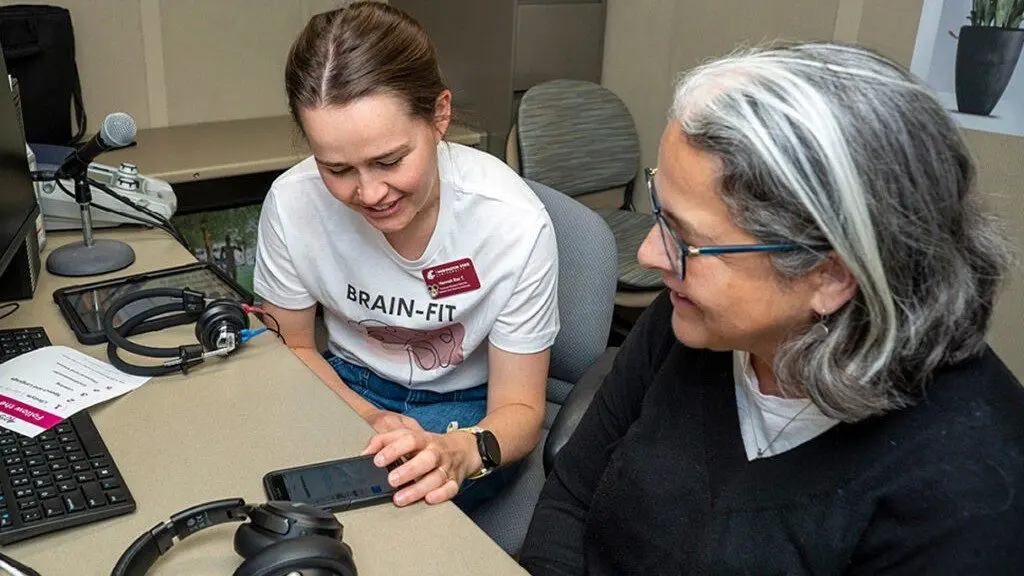PULLMAN, WA – Preliminary results from a new brain health initiative led by Washington State University show that hearing loss was more common than the national average among 160 people who participated in free community health screenings hosted across the Inland Northwest this summer.
That’s concerning, researchers say, because hearing loss can accelerate cognitive decline by diverting the brain’s resources away from memory and thinking while also reducing social engagement. Detecting and addressing it early can make a major difference.
“Of everything you can do to protect your brain as you age, your hearing plays a huge role and is one of the easiest things that can be addressed,” said Amy Kemp, an assistant professor in WSU’s Department of Speech and Hearing Sciences in the Elson S. Floyd College of Medicine.
Led by Kemp, the BRAIN FIT initiative — short for Building a Repository for Aging, Interventions, and Neurocognitive Function: Factors that Impact Cognitive Trajectories — brings free screenings and education to rural communities across eastern Washington and northern Idaho. The project aims to raise awareness of modifiable risk factors for Alzheimer’s disease and related dementias while training students and collecting data to advance research on healthy aging.
The project aims to raise awareness of modifiable risk factors for Alzheimer’s disease and related dementias while training students and collecting data to advance research on healthy aging.
This summer, Kemp and an interprofessional team offered screenings focused on cardiovascular health, social-emotional well-being, nutrition, sleep, and other lifestyle factors linked to brain health. Participants received personalized education and resources to help lower their long-term risk of cognitive decline. Kemp hopes the mobile clinic will raise awareness of the ways individuals can lower their risk of dementia, particularly through lesser-known factors such as protecting one’s hearing.
“My aim is to bridge research and clinical practice,” said Kemp, who leads the Accelerating Research in Cognitive Communication Health (ARCCH) Lab. “The goal of the lab is to directly translate research into what clinicians and the communities they serve need.”
Students from the Speech and Hearing Sciences (SHS) department and the WSU College of Nursing gained hands-on clinical experience as part of the clinic team. Nursing students Elizabeth Brazington, Hayley Devine, Kaylynn Koon, and Vy Pham conducted screenings, supported by a grant from the Granger Cobb Institute of Senior Living and supervised by Nursing faculty Sue McFadden, Kay Olson, and Robyn Maehren.
SHS undergraduate students Solveig Anderson and Hailey Lengenfelder and graduate students Callie Barokas, Hannah Tjelle, Janelle Wilson, and Madison Baller assisted with the screenings and preparing resource handouts. They will also contribute to BRAIN FIT research.
The team is currently seeking a sponsor to continue the mobile clinic next year to address important questions about modifiable risk factors that can support positive aging trajectories.
Enhancing health outcomes and empowering student inquiry
Data from the screenings and regular follow-ups with participants will be collected in a repository, allowing researchers to analyze which factors best predict the trajectory of cognitive decline over time and which self-managed interventions are most effective for supporting healthy aging. Preliminary results show that on average participants had elevated scores on seven of 18 risk factors, and 23% of participants had low or low normal cognitive scores.
Repository data is available to health sciences graduate students for use in their own research. So far, three SHS students are using the repository to complete research projects related to brain health. Each student will present their findings to the community at clinic locations in the spring.

Master’s student Madison Baller is particularly interested in how mental health and adverse childhood experiences impact cognitive health later in life. Depression and other indicators of emotional well-being are known risk factors for dementia.
“So many Americans experience mental health difficulties and may not realize how it is impacting their cognitive functioning,” she said.
Janelle Wilson, also a second-year master’s student, is investigating connections between vision and hearing loss and cognitive decline, which could have important implications for clinical practice. She also hopes the low- or no-cost resources she helped collect in clinic handouts prove useful, including the WSU Aging Assistive Technology program.
Master’s student Hannah Tjelle is most interested in studying resource use and behavior change after clinic visits, in particular whether individuals with mild cognitive impairment need ongoing support to sustain changes. While she plans to pursue a career in clinical practice instead of research, she notes that insights from the project will be valuable for her own practice.
“I will certainly carry these clinical experiences and research findings with me my whole career as a speech language pathologist,” Tjelle said.





